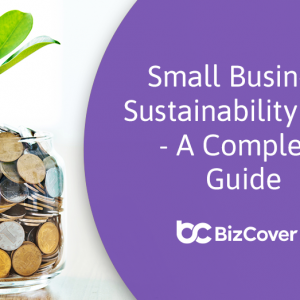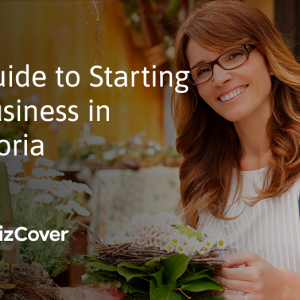Starting a new business in Australia can be overwhelming, given all of the important details that you as the business owner need to consider. It’s no wonder that many small business owners use checklists to keep track of their to-do lists and all the critical things involved when managing a newly created business in Australia.
To help ambitious small business owners open a small business in Australia and make it a success, we’ve created the following business start-up checklist. Learn more about the most essential things to consider when starting a business and setting up your promising new start-up.
1. Do your research
Small businesses can often fail because there just isn’t a market for the products or services that they offer. To determine if your business idea has legs, the first step is to conduct market research and determine the size of the opportunity. To do so, try and gauge:
- if there is a market for the products or services you intend to offer;
- the current and future trends that could impact your business idea;
- who your competitors are and how they will react to a newcomer in the market;
- who is your target audience and what will motivate them to do business with you?
- How much will it cost you to launch and manage your business? Bear in mind that new business owners can easily underestimate their initial capital expenditure costs, and that supplier terms for new business entrants can be quite restrictive.
2. Create a strategic business plan
If you are seeking help starting a business, writing a business plan can simplify the path you will take. It will help you to determine if your idea will be viable and how much funding you will need.
Your business plan should also outline your business goals and the steps that you will take to reach them. It acts as a guideline or roadmap for your company and is therefore an invaluable tool for helping your business succeed. It’s also worth noting that you will need a business plan if you want to get funding for your start-up.
3. Determine your budget, forecasts and costs
To determine if your idea will be financially sustainable and become a popular business, you will need to calculate the costs involved in starting and managing your business. While every business is unique, there are common expenses that all start-up businesses generally need to consider. This applies regardless of whether your business plan is for a brick-and-mortar business, an online-only business, or if you are buying into a franchise or an existing business.
Whichever route you take, you will benefit from planning your sales projections, determining your pricing structure, and creating a realistic budget for your operating expenses. During this process you may benefit from speaking to an accountant or a small business banking expert to determine the amount of funding that you will need to launch your start-up.
4. Select a business structure
The type of business structure that you choose for your small business – whether sole trader, partnership, or company – will affect many factors in your business moving forward. These factors include key details such as:
- how much tax your company will have to pay;
- your legal status; and
- how much administrative work you will need to do.
It will also impact your ability to raise money – through avenues such as acquiring investors or selling shares in the business.
Determining the ideal business structure for your new business can be tricky if it’s your first time. As such, you may benefit from seeking external help from an accountant or a solicitor who routinely administers such processes. These professionals typically oversee the technical aspects of starting a new business and can clearly explain the legal requirements for starting a business and the financial steps required to formally establish your business.
5. Take control of your finances
There are some important points to remember when it comes to setting up and managing your finances as a new business owner. Here are several examples to get you started:
- You will need to clearly organise your finances if you intend to apply for a business loan.
- Determine if you are eligible for a small business loan, a business credit card, or other types of funding.
- Establish a business bank account for your start-up business.
- Nominate an accountant or bookkeeper to help with your business’s tax and reporting obligations.
- Register your company and apply for GST payments.
- Set up small business accounting systems, reporting, and processes.
- Manage your cash flow responsibly.
6. Setting up your new business premises
It can be difficult and expensive to find the perfect location for your new business. The type of business you run and the sector you service will determine the best location for your new business.
Once you’ve identified the location and premises for your business, you will need to decide whether you buy the property outright (if it’s for sale) or lease it. At this stage you will also need to decide if you will need to fit out the premises, and how you may need to modify it to suit your business operation. Depending on the type of business you intend to create, you may also have the option to start a business from home.
7. Register your company
There are many things that you can benefit from knowing when starting a new business, including how to apply for a business name, how to register your new business, how to protect your intellectual property (IP), and how to purchase your domain name.
When it comes to registering your business, you may benefit from speaking with an accountant or small business banking specialist to ensure that your business is properly set up with the right structure. Business.gov.au provides helpful information on structuring a business for small business owners, including details on how to register your business name.
8. Hiring staff
Hiring and retaining staff can be one of the most difficult obstacles small business owners have to face. Every employee in a small business can make a difference to the culture of the business. As such, as a small business owner you can benefit from embracing strategies that will help you increase productivity, maintain staff morale, and retain employees – in addition to attracting the best people to your business.
Recommended reading: Consultant vs contractor: What are the differences?
9. Create your marketing strategy and plan
When you come to creating a marketing plan to grow your business, the first thing to do is market research. This will help you gain insights to better understand who your target audience is, what motivates them, and what frustrates them. It will also give you a better idea of how to market to them.
Once that research is done and you have developed some keen insights into your target audience, you can pull it all together and create your marketing strategy and your marketing budget. With your marketing strategy locked in, you are now ready to roll out your marketing activities.
10. Embrace digital marketing tactics
Online marketing is one of the most effective and popular methods of marketing today. While having an attractive and functional company website is essential, a website alone is not enough to attract and convert potential customers to your small business. It may be in your interest to engage a digital marketing agency to make digital marketing recommendations and to help manage the strategic digital marketing activities for your start-up.
11. Get the support that your business needs to reach its potential
As the newly minted owner of your own small business, it can be easy to feel overwhelmed at times, especially if you are a first-time business owner. However, it’s worth keeping in mind that there are many valuable resources available to you.
These include accountants, business bankers, government funding and support for small businesses, business mentors, and business networking organisations for small business owners. You can also learn from other small business owners by registering for an online course, listening to small business podcasts, and participating in small business networking groups.
How BizCover helps small businesses grow
A major part of succeeding long-term as the owner of your own small business is ensuring that your business is built to endure long-term. A key strategy for long-term success in business is reducing your risk.
At BizCover we make buying your business insurance* Sydney faster and easier than ever – and without the hassle you may have experienced in the past when buying your business insurance.
We provide a quick and easy online platform for small business owners throughout Australia to compare competitive business insurance quotes online and purchase their business insurance in less than 10 minutes – and without any paperwork.
Common types of business insurance that you may consider for your new business include:
Professional Indemnity insurance: Protects your business from losses arising out of acts, errors and omissions from a wide variety of services.
Business Insurance: An insurance package designed to provide cover for your business contents, stock, tools and commercial premises when an insured event occurs.
Public Liability insurance: Business insurance that protects you from claims and supports your profitability in the event of a cyber breach or attack. If your business is based in Victoria, compare competitive quotes from leading insurers.
Compare competitive business insurance quotes for your small business, get covered in only 10 minutes, and get back to building your business. If you prefer to speak with us, you can reach our friendly team on 1300 920 867.
This information is general only and does not take into account your objectives, financial situation or needs. It should not be relied upon as advice. As with any insurance, cover will be subject to the terms, conditions and exclusions contained in the policy wording.
© 2022 BizCover Pty Limited, all rights reserved. ABN 68 127 707 975; AFSL 501769
ABN 68 127 707 975; AFSL 501769


